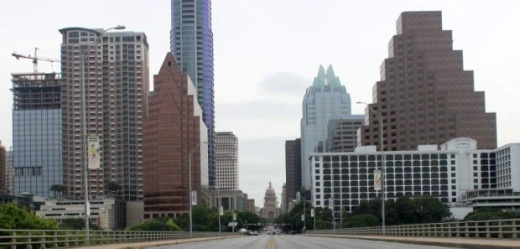The orders come as COVID-19 numbers in the Austin area continue a spike that began in early December. The seven-day average of new COVID-19 hospitalizations in the area has more than doubled in the month—from 30 on Dec. 2 to 63.7 on Dec. 28. That led health officials to move the area to Stage 5 of COVID-19 risk on Dec. 23, its highest risk stage. Under Stage 5, Austin residents are asked not to gather with anyone outside the household and businesses are asked to provide contactless options only, such as takeout and curbside pickup rather than dine-in service. When Austin moved to Stage 5, Dr. Mark Escott, Austin-Travis County Interim Health Authority, said officials would be keeping an eye on numbers and would call a curfew if the spike continued, which he said would be a "last resort" for the community.
The amended orders issued Dec. 29 are not a curfew. Residents do not have to be inside at a certain hour of the night. However, the orders do prevent certain businesses from opening for late-night hours in person. Between 10:30 p.m. and 6 a.m, restaurants and bars will be able to offer only curbside or to-go service. The punishment for violating the orders, as well as any other state and local COVID-19 mandates, remains the same: a misdemeanor charge and a fine of up to $1,000. As of Dec. 22, there have been 27 Travis County bars cited for violating those guidelines, according to Escott.
The new restrictions are part of an effort to turn around COVID-19 numbers that have continued on a path that is worrisome to local leaders. As of Dec. 29, the community's positivity rate was 9.9%, more than triple the target officials have set. The moving average of COVID-19 patients hospitalized in the Intensive Care Unit was 110, up more than 40% since the beginning of the month.
Dr. Shailaja Hayden, an intensive care unit physician and assistant professor in the department of internal medicine at Dell Medical School at the University of Texas, said at a Dec. 29 press conference she and her colleagues working in hospitals are "emotionally and physically tired" after treating COVID-19 patients for months.
Hayden said while the chances for young people of surviving the virus are good, they still could experience a "hellish journey" in the ICU or the "guilt and grief" of bringing the virus home to a family member.
"I would put out a plea to the young people: A virtual holiday celebration is kind of lame, but a virtual funeral is heartbreak," Hayden said.





